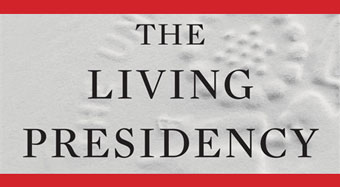‘A creeping constitutional coup’
"The time is ripe for a dispassionate appraisal of the modern office, one free of partisanship and a focus on the crisis du jour," writes Saikrishna Prakash
The following is excerpted from the introduction to The Living Presidency, by Saikrishna Bangalore Prakash, Copyright © 2020 by the President and Fellows of Harvard College. All rights reserved
The important thing is the presidency. If need be, save the presidency from the President.
—Richard Nixon to Elliot Richardson, 1973
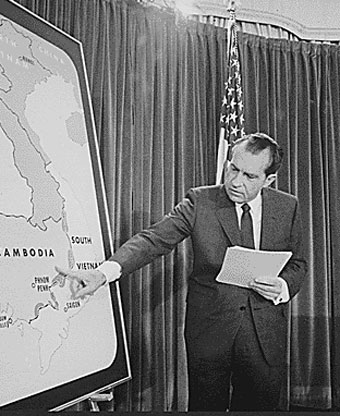
Modern American presidents wield a vast array of constitutional powers, making their office one of the most powerful on earth. They take the nation to war, dispatching our men and women to battle in far-off lands. They make laws with the stroke of a pen, sometimes adding needful provisions and occasionally ignoring inconvenient or unwelcome rules. In foreign affairs, they evade core constitutional clauses, like those related to treaties and spending, in the way that an impatient motorist might bypass bothersome traffic.
It wasn’t meant to be this way. Our Founding Fathers certainly did not fashion a Constitution that authorized presidents to amend and expand their constitutional office. Likewise, “We the People” never chose to transform our presidency, making it more royal and powerful and less executive and duty-bound. As we behold the modern presidency, mull the modifications of the office, and dwell on the Constitution’s text, most of us can sense that our presidency is a distortion of the original McCoy. Essentially, our familiar presidency is a funhouse-mirror version of the Founders’ presidency except in our reality the carnival version is the lived experience, and not just a silly or grotesque reflection.
Essentially, our familiar presidency is a funhouse-mirror version of the Founders’ presidency.
We are right to feel uneasy about the future. Congress, charged with making our nation’s laws, seems obsolete, a place where useless speeches are occasionally punctuated by pointless votes. The courts, too, offer sporadic resistance, but not nearly enough to redirect the trend. They are reactive and slow and, acting alone, are no match for the energetic executive. Attempting to advance policy and personal agendas, our next president likely will continue to push the boundaries of the office outward and, in order to advance his or her policies, grasp at new powers. After all, every modern president has begun his term with a deep-seated belief that his agenda is wholly just and absolutely necessary, that he alone enjoys a popular mandate, and that the “loyal opposition” is in fact obstinately obstructionist. Presidents may enter office imagining that they can heal the partisan divide and work across the aisle, but reality eventually sets in. In the context of what seems an unreasonable, even rabid, opposition and an urgent need to fulfill campaign promises and do what is best for the nation, presidents seize authority to do what they believe is necessary and right.
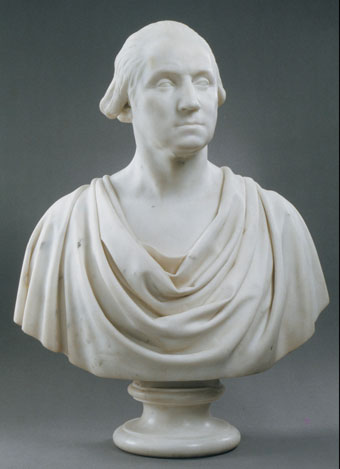
What of the Constitution and its limits? Well, today’s presidents recognize that the 2020 Constitution is not the 1789 Constitution, and that as the times change, so does our living Constitution. In this context, why does what George Washington thought about the reach of presidential power matter at all? When it comes to their powers, presidents realize that what matters are the rock-solid needs and demands of today, not the hazy limits and outdated conceptions of an obscure, distant, and rather different past. Sure, Alexander Hamilton, James Wilson, and James Madison were smart, but what could they have known about nuclear bombs or our multi-trillion- dollar high-tech economy? The theories and concerns of the Founders are a poor match for the realities and problems of today. While modern presidents may say a few kind words about the Founders here and there, they see no need to live under the outmoded Constitution of the past. Our living Constitution, with its many informal amendments and its potential for more, better suits their needs.
Creeping coups are more likely to succeed because the change is gradual, sometimes imperceptible.
Be alarmed, but not fearful. No aspiring president, no matter his or her party, will stage an actual coup any time soon. America’s institutions of representative government are too sturdy for that, and besides, the American people would not stand for it. Yet candor requires admitting that for decades we’ve witnessed something of a creeping constitutional coup. And creeping coups are more likely to succeed because the change is gradual, sometimes imperceptible. Like the proverbial frog in the pot, we often fail to discern some of these changes in the presidency and mostly haven’t noticed these dangers to our Constitution.
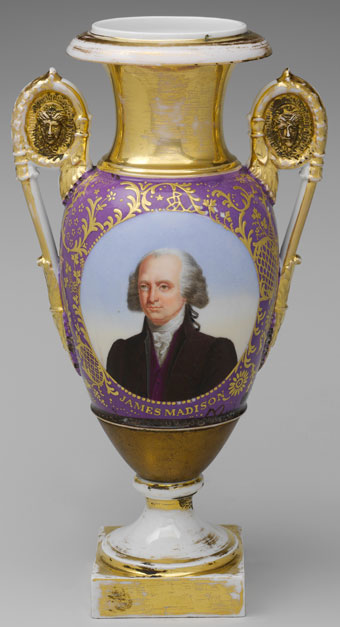
Over more than two centuries, the American presidency has been transformed into what Arthur Schlesinger Jr. called an “imperial presidency.” In coining the term, Schlesinger largely focused on wars. Yet he certainly understood that the expansion of presidential power was not limited to the martial arena. Modern presidents have advanced on all fronts, pushing the boundaries of their constitutional office outward. They now wield far greater authority over lawmaking, law enforcement, and foreign affairs. What James Madison said in 1788 about legislatures—“[ t]he legislative department is everywhere extending the sphere of its activity, and drawing all power into its impetuous vortex”—now applies more aptly to the executive. We have, in short, a living presidency. It is an office with no fixed limits and with the potential to expand by leaps and bounds.
I do not claim that modern presidents rule with no constraints at all. That is manifestly untrue. There remain legal restraints on the executive, such as the universal expectation that presidents will enforce judicial judgments, including ones that they loathe. Likewise, presidents do not punish the accused outside the justice system. Rather the point is that the modern office grows more powerful over time and that any existing constraints can be overcome in due course. The modern presidency has no enduring limits, no permanent frontiers.
We sometimes fail to notice the absence of any permanent constraints on the presidency because we are too often beguiled by a set of comforting constitutional platitudes. “The president cannot make law,” we assure ourselves. “Presidents cannot make treaties without the Senate’s consent” because it says so in the Constitution. “The Constitution cannot be changed via mere practice.” Presidents, because they take an oath to “preserve, protect and defend the Constitution,” cannot violate it, much less amend it.
But in the twenty-first century, these feel-good bromides are false.
But in the twenty-first century, these feel-good bromides are false. Our living presidency subverts the idea of an executive subject to the Constitution and to the laws. If presidents can unilaterally alter the Constitution, they can circumvent the document that spells out and limits their authority. The president’s express obligation to “preserve, protect and defend the Constitution” becomes irrelevant in the face of a practical power to alter, undermine, and subvert the Constitution. Likewise, if presidents can supplement, amend, or ignore federal statutes, they are also lawmakers and they need not take care to faithfully execute Congress’s laws.
As this book goes to press in 2019, the incumbent has many on edge. The sense of disquiet surrounding the presidency seems especially acute. Yet despite the pronounced differences in style and rhetoric, Donald Trump’s immediate predecessors were little different in their efforts to pursue their agendas and, as a byproduct, expand the office of the chief executive. To be sure, the Republican faithful are quick to blame Democratic presidents; for their part Democrats are apt to indict Republican ones. But if we are honest with ourselves and escape the partisan perspective for a moment, we know in our heart of hearts that the problem has deep roots. Presidents of both parties have aggrandized themselves and the office of the presidency. There are no angels among our recent presidents, at least on questions of presidential power. Whatever noble qualities they may have had—patriotism, compassion, earnestness—each has contributed to inflating the powers of the living presidency.
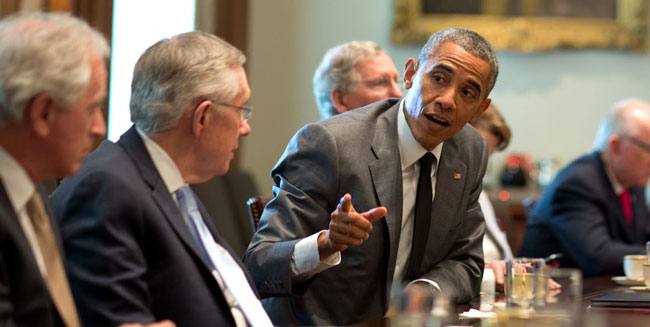
Consider Barack Obama. Though Senator Obama earnestly promised that he would restore the rule of law to the office, President Obama saw things differently. Obama took America to war in Libya and evaded Congress’s laws via dubious interpretations. What transformed a cutting critic of presidential power into one of its most energetic exercisers? There is an iron law of American politics: one’s view on the scope of presidential power often depends on where one sits. From the Senate chamber or the gubernatorial chair, the presidency may seem to have gone off the rails. But once in the Oval Office, behind the Resolute Desk, every president quickly comes to see the benefits of a powerful executive. Even ardent admirers were astonished by Obama’s U-turn. If Obama, the constitutional law professor who conspicuously and repeatedly vowed to curb the presidency, succumbed to the temptation to grasp and seize authority, constitutional and otherwise, can any occupant of the Oval Office ever resist it?
George W. Bush inaugurated this century’s unease with presidential power. His administration’s muscular advance of presidential prerogatives provoked fierce responses from the academy and the bar. While signing bills into law, Bush announced that these new statutes contained hundreds of unconstitutional features because they attempted to limit his constitutional authority. Bush also claimed the right to ignore existing laws that constrained his authority as chief executive and commander in chief. When Bush famously said “I’m the decider,” some observers could be forgiven for supposing that he was proclaiming a belief that he could and should decide all matters of government.
Has the living presidency become a juggernaut? The word juggernaut comes from Puri, India, where a celebrated Hindu temple contains three murthis (idols). One depicts Jagannath, “lord of the universe.” Every year, votaries place the Jagannath murthi atop a gigantic, forty-five- foot high chariot and conduct a ceremonial procession. Once this massive carriage gains momentum, it is said to be unstoppable—indeed it has crushed those in its path.
Many people fear that our presidency has become a juggernaut, an unstoppable force. Our presidents regularly play offense—grasp for new legal authority—whereas their institutional competitors seem always to be on the defense. Similarly, presidents seem unwilling to cede an inch to their rival, Congress, insisting that the Constitution forbids legislative encroachment on the executive branch. Given the way the game is played, even if presidents prevail only part of the time, the net effect is presidential expansion. Essentially each president says to Congress, “What is mine will remain mine. What is yours now may, in time, be mine.”
This book argues that the living presidency is not a juggernaut. It is very much stoppable, and we need not be crushed under its wheels and constant progression. Just as the modern presidency was formed over the course of many decades, so too must the movement to curb it stretch across many years. There will be no single moment marking the retreat or collapse of the living presidency.
If you are troubled about ever-expanding presidential powers, as I am, you cannot afford to be distracted by tweets, foibles, polling, or for that matter, sound policy.
Precisely because the anxieties triggered by the presidency transcend any particular occupant of the office, it is worth considering the contours of the presidency, as it exists today, without obsessing about the particular excesses of any single president, current or past. Our politics and media understandably fixate on the incumbent’s personality and controversial acts, offering rapid reactions from partisans, a focus on polling numbers, and predictions about how some act will influence the next election. Can the president be impeached? Will the courts stand up to him? Is this president (Bush, Obama, or Trump) the most lawless? But we need to move beyond the ephemera of whether a particular president was or is the most imperial or whether the incumbent’s legal innovations are popular or even desirable. If you are troubled about ever-expanding presidential powers, as I am, you cannot afford to be distracted by tweets, foibles, polling, or for that matter, sound policy.
The time is ripe for a dispassionate appraisal of the modern office, one free of partisanship and a focus on the crisis du jour. This can be hard to do, but if the overarching aim is to diagnose the causes and consequences of a grasping presidency, and curb the condition, some detachment is essential.
When we escape the partisan perspective and today’s headlines, we can better see that our presidents take actions not traceable to any plausible reading of the original Constitution. They can and do:
• Veto transborder pipelines, cables, and wires
• Dodge the Treaty Clause and make treaties with foreign nations without securing the consent of two-thirds of the Senate
• Declare war
• Spend money that has not been appropriated by Congress
• Make federal law courtesy of congressional delegations of lawmaking authority and by advancing spurious interpretations of existing law
• Ignore federal laws that restrict the president’s use of the military
• Alter congressional laws by repeatedly violating them
• Amend the Constitution via repeated transgressions of it
Some of these claimed powers may be familiar while others are undoubtedly obscure. A few changes arose during the past several decades; others date back more than a century. Finally, a few have the potential to determine the fate of the United States, while some seem trifling.
In reality, each is quite significant. Trivial presidential usurpations pave the way for future encroachments and informal constitutional amendments. If presidents can acquire the power to approve private cross-border pipelines, why can’t they seize other authorities? If they can circumvent the Constitution’s Treaty Clause, why not the Constitution’s intricate rules about lawmaking, in particular the cumbersome process of bicameralism passage? Because success breeds success, a successful alteration of the Constitution and federal laws creates a roadmap for further innovation and expansion.
What is the principal engine of this constitutional and statutory change? To borrow from Joseph Schumpeter, it is the alchemy of creative destruction. As strange as this may sound to most Americans, modern presidents can change the law by violating it. More precisely, they change the Constitution and federal law by stretching, bending, and breaking elements of both. Every other American faces consequences, often severe, for breaking the law. But under contemporary practices and approaches, presidents often face little or no real adverse repercussions. To the contrary, presidential law-breaking benefits the incumbent and expands the office of the presidency. Unlike the rest of us, presidents can liberate themselves through the transformative, emancipating process of law-breaking.
The most famous judicial expression of this theory comes from Supreme Court Justice Felix Frankfurter. In a celebrated case involving the extent of presidential power—whether Harry Truman could seize and operate steel mills during the Korean War—Frankfurter adopted an approach to executive power that has since resonated with presidents and their legal advisers:
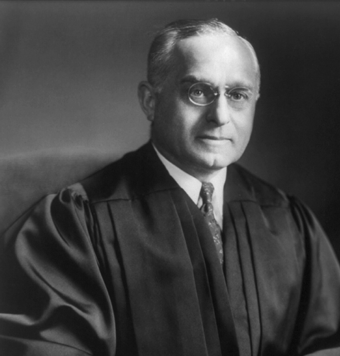
Deeply embedded traditional ways of conducing government cannot supplant the Constitution or legislation, but they give meaning to the words of a text or supply them. It is an inadmissibly narrow conception of American constitutional law to confine it to the words of the Constitution and to disregard the gloss which life has written upon them. In short, a systematic, unbroken, executive practice . . . may be treated as a gloss on “executive Power” vested in the President by § 1 of Art. II.
Though Frankfurter insisted that traditions cannot “supplant” the law, he basically admitted that repeated practice may trump the original meaning of the “words of the Constitution.” Even if the gloss does not exactly supplant the previous meaning, it certainly overwhelms it. This is what I will call the “practice-makes- perfect” school of executive authority. By transgressing a law repeatedly over time, the president actually can change the law’s meaning. While Frankfurter was speaking primarily of constitutional change, this way of this way of thinking has also influenced how people understand statutory change, for presidents likewise claim to have the authority to change federal law via repeated violations. Practice can put a gloss on any existing rule, constitutional or statutory, and thereby render its original meaning immaterial.
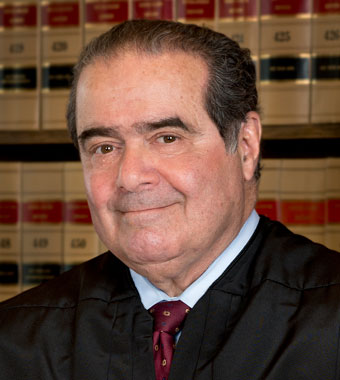
Writing decades later, Justice Antonin Scalia decried this claim as misplaced “adverse possession.” Adverse possession, a property law concept, states that if A squats on B’s land long enough—typically decades—squatter A eventually becomes the land’s owner and B loses her interest. Scalia fully intended to invoke what he saw as the absurdity of the analogy: presidential trespasses should not serve as a means of amending the Constitution.
A district judge, responding to the claim that presidents had acquired a power to seize private property in the absence of congressional authorization, put it this way: “The fact that a man reaches in your pocket and steals your wallet is not a precedent for making that a valid act.”8 In other words, a pickpocket cannot acquire the legal right to lift wallets through dogged repetition.
Yet this is a principal defense of the living presidency. Essentially, modern presidents are pickpockets. After pilfering particular authority enough times—say, the power to declare war—that originally rested elsewhere, presidents (and their lawyers) eventually claim that the particular authority is now equally theirs. Furthermore, having pilfered many sorts of specific authority over time, they assert a general power to acquire the constitutional authority of others.The living Constitution, they say, authorizes and sanctifies their acquisitiveness.
